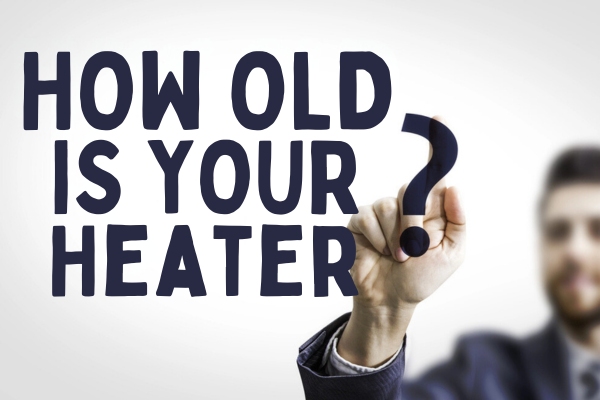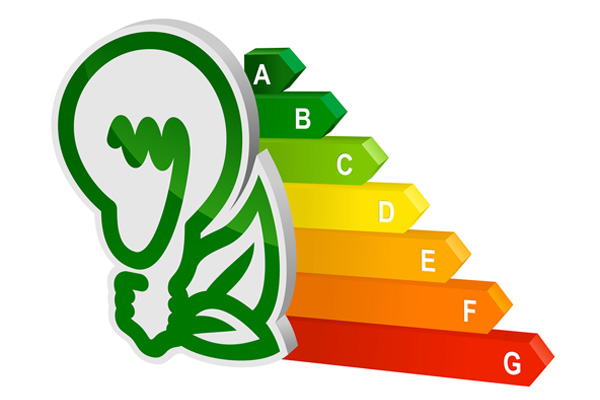3 Ways To Tell If Your Heater Is Running Efficiently

In the chill of winter, having an energy efficient heater in your home becomes crucial to enhancing indoor comfort. As it warms your living spaces, the system does more than shield you and your family from the harshness of the cold—it also safeguards your plumbing from winter woes like freezing pipes.
An optimal heating system excels in energy efficiency, operates quietly, and boasts durability. For example, an energy efficient heater lowers energy bills, enhances heat distribution throughout your home, and minimizes maintenance costs. This article by McAllister Energy will guide you through identifying if your heater is performing efficiently and offer strategies to boost its effectiveness.
Energy Efficient Heater: Determining Heating System’s Efficiency
Contents
- 1 Energy Efficient Heater: Determining Heating System’s Efficiency
- 2 Enhancing Your Heating System’s Efficiency
- 3 Reasons to Upgrade Your Outdated Heater
- 4 Heating Efficiency FAQs
- 4.1 Does a Heater’s Age Directly Reflect Its Efficiency?
- 4.2 What Steps Can I Take If My Heater Lacks an AFUE Rating Label?
- 4.3 Is There a Specific Energy Bill Amount That Suggests Inefficiency?
- 4.4 How Can I Tell If My Home Is Properly Insulated?
- 4.5 What Are the Dangers of Using an Outdated Heating System?
- 5 Conclusion
- 6 Contact McAllister Energy for Comprehensive HVAC Services
Before selecting a heater, it’s essential to know the square footage of your area to ensure the unit can adequately warm your space. The U.S. Department of Energy states that older heating systems typically run at 56% to 70% efficiency, while a newer energy efficient heater can reach up to 98.5% efficiency. Remember, a heating system’s efficiency can decline by as much as 5% annually without proper upkeep.
Below, we outline three key indicators to assess the energy efficiency of your heating system.
1. Heating System Age

Residential heaters typically last between 15 to 20 years. Although regular maintenance can prolong a system’s efficient operation, inevitably, efficiency decreases over time due to wear and tear. The age of your heater can be a telltale indicator of its efficiency, with older systems generally being less efficient.
Consulting with a certified HVAC contractor can clarify any questions you may have about your heater’s energy efficiency, even after considering its age.
Book Your No-Cost Home Assessment Now: Are you looking to boost the efficiency of your home heating? Schedule a complimentary in-home evaluation with McAllister Energy today. Learn how our skilled HVAC professionals can help reduce energy expenses and elevate your comfort levels.
2. Energy Bills Analysis
Energy bills naturally vary with the seasons, reflecting your home’s heating demands. However, your annual energy expenses should remain relatively consistent year over year, barring any increases in energy rates. To gauge the efficiency of your heating system, do a comparison of your current energy bills with those from the same period last year. Look for any unexplained increases in costs that could signal inefficiencies.
An increase in your energy bills may point to decreased efficiency in your heating system. Specifically, a heater with lower efficiency must operate longer and exert more effort to adequately warm a space. This extended operation leads to higher energy consumption, which, in turn, drives up your energy costs.
3. AFUE Rating Explained

AFUE stands for Annual Fuel Utilization Efficiency, a standard measure used to indicate a heater’s efficiency level. This rating is calculated by dividing the heater’s heat output by its heat input, essentially measuring the fuel consumed. For example, a heater with an AFUE rating of 95% efficiently converts 95% of the consumed fuel into heat while the remaining 5% escapes through the venting system.
Most heating system manufacturers display the AFUE rating on their unit labels, allowing you to easily assess your heater’s efficiency simply by checking the label. If the label is missing or hard to read, you can locate the model or serial number on the heater and use it to find the AFUE rating directly from the manufacturer’s website. This rating will help you determine the energy efficiency of your heater.
Schedule a Comprehensive HVAC Check-Up: Ensure your heating system is at peak efficiency; contact McAllister Energy today. Our certified technicians will conduct a detailed HVAC inspection, helping you maintain a warmer, more efficient home this winter.
Enhancing Your Heating System’s Efficiency

Operating a low-efficiency heating system can compromise your comfort during cold days, escalate your energy costs, and lead to more frequent breakdowns. Moreover, depending on your chosen fuel type, using a less efficient heater may contribute to a higher carbon footprint. Considering these factors, follow these tips to boost the efficiency of your heating system.
- Maintain & Replace HVAC Filters Consistently: If your HVAC filter is clogged, your furnace has to exert more effort to circulate air. To prevent this, clean your filters regularly and replace them as necessary.
- Enhance Home Insulation: Proper insulation in your home helps retain heat, significantly reducing the strain on your heating system. By keeping the warmth inside, you’ll ease the workload on your furnace and enhance overall efficiency.
- Plan Yearly Heating System Inspections: Scheduling regular maintenance with a qualified HVAC contractor can significantly boost your heating system’s efficiency. These annual inspections are crucial for identifying and resolving any issues that could hinder performance.
- Implement a Programmable Thermostat: A programmable thermostat adapts to your heating needs, operating only when necessary. This ensures that your furnace utilizes fuel precisely aligned with your actual heating requirements, optimizing energy use and reducing waste.
Discover Our HVAC Expertise: Reach out today to explore how McAllister Energy can enhance the efficiency of your heating system. We are here to assist you whether you need regular maintenance or cutting-edge installations. Don’t hesitate—call us now!
Reasons to Upgrade Your Outdated Heater

There comes a time when routine maintenance no longer significantly boosts your heater’s efficiency. At this stage, replacing your heater offers several advantages:
- Enhanced Indoor Comfort: With its higher efficiency, a new heater is better equipped to provide sufficient warmth. This is crucial for maintaining comfort during the cold seasons, a task that an outdated heater might struggle with.
- Reduced HVAC Breakdowns: Older heaters often fail more frequently due to accumulated wear and tear. A new heater minimizes these disruptions and cuts down on repair expenses.
- Lower Heating Costs: Newer heaters are more efficient, which generally means they consume less energy. This efficiency translates to reduced heating costs, offering long-term savings on your energy bills.
Seek Professional Guidance on Heater Upgrades: Wondering if it’s time to update your heating system? Get in touch with McAllister Energy for professional recommendations and premier heater replacement services. We can help reduce your energy costs and improve your home’s comfort.
Heating Efficiency FAQs

Does a Heater’s Age Directly Reflect Its Efficiency?
Although age is an important factor, it alone does not dictate a heater’s efficiency. A heating system’s efficiency also hinges on the model’s design, the quality of its installation, and consistent maintenance practices. An older heater that has been well-maintained and upgraded with modern components can still operate effectively.
What Steps Can I Take If My Heater Lacks an AFUE Rating Label?
Should the AFUE rating be missing from your heater, the model or serial number can serve as a valuable alternative. Utilize these identifiers to look up efficiency details on the manufacturer’s website or reach out to their customer support. This method provides you with accurate efficiency information tailored to your specific heating unit.
Is There a Specific Energy Bill Amount That Suggests Inefficiency?
There isn’t a strict threshold that definitively points to inefficiency, given that energy expenses can vary for many reasons. However, a steady rise in energy bills, even when fuel prices remain constant and usage doesn’t increase, can indicate that your heating system may be becoming less efficient. Keeping an eye on your energy bills over a period can help detect any gradual declines in efficiency.
Beat the Cold with Expertise! Ensure your home stays warm this winter by calling McAllister Energy for dependable heating services. Call now!
How Can I Tell If My Home Is Properly Insulated?
Stable indoor temperatures and moderate heating costs usually indicate good insulation. Signs of poor insulation include frequent drafts, uneven heating in different rooms, or an unusually loud heating system. Conducting an energy audit is a reliable way to evaluate your home’s insulation effectiveness and pinpoint areas needing enhancement.
What Are the Dangers of Using an Outdated Heating System?
Continuing to use an outdated heating system carries several risks. Such systems often consume more energy as they struggle to provide adequate heat, leading to higher utility bills. Additionally, older heaters may require more frequent repairs and are more prone to unexpected malfunctions due to accumulated wear and tear. There’s also the concern that they may not comply with current safety regulations, posing potential hazards. Upgrading to a newer, more efficient model can reduce these risks while improving comfort and lowering maintenance costs.
Conclusion
Determining whether you have an energy efficient heater can be achieved by assessing its age, checking the AFUE rating, and reviewing your energy bills. If you find that your system is lacking in efficiency, it’s advisable to consult a professional HVAC contractor for a comprehensive inspection and necessary maintenance to enhance its performance. In instances where the heater is significantly old or outdated, considering a replacement might be the best course of action.
Warmth You Can Count On! Dial McAllister Energy today for top-notch heating solutions that promise lasting comfort. Call today!
Contact McAllister Energy for Comprehensive HVAC Services
McAllister Energy provides top-tier heating and cooling services across Camden County, NJ, and the neighboring areas. Our team comprises highly skilled, certified technicians adept at performing precise HVAC tune-ups, repairs, installations, replacements, and more. Each technician brings knowledge and experience, ensuring your HVAC system receives expert care.
We pride ourselves on offering the most competitive prices for heating and cooling services in the area. Our maintenance solutions not only enhance comfort but also boost energy efficiency, thereby reducing your heating and cooling expenses. If you need an HVAC repair or are considering a system upgrade, we can guide you to the best options that fit your budget.
We stand behind our work with a satisfaction guarantee. To arrange a service visit or receive a free, in-home consultation, call McAllister Energy today. Call now!
You can click here to contact us now or call us at (856) 665-4545 to find out more! Click the link to view our service area.

Related Articles: